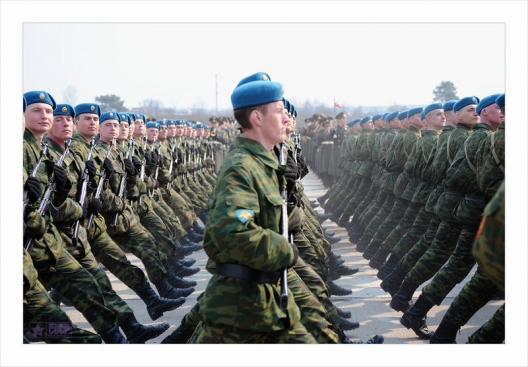 At the very least, a military exercise on this massive scale, so close to the borders with a sovereign state, is meant to send a stern message to the new leaders of Ukraine that there is a limit to that nation’s independence. Moscow has refused to recognise the new political order in Kiev, denouncing the parliamentary ouster of President Viktor Yanukovich as “armed mutiny.” Any new government in Ukraine will need to take account of Russia’s interests, or so the message goes.
At the very least, a military exercise on this massive scale, so close to the borders with a sovereign state, is meant to send a stern message to the new leaders of Ukraine that there is a limit to that nation’s independence. Moscow has refused to recognise the new political order in Kiev, denouncing the parliamentary ouster of President Viktor Yanukovich as “armed mutiny.” Any new government in Ukraine will need to take account of Russia’s interests, or so the message goes.
At worst, the exercise could mask a full mobilisation in preparation for possible military action to protect those Russian interests. And Moscow sees many interests at stake in Ukraine. Not only are there long and historical ties between the two nations, but the eastern part of Ukraine is home to many people of Russian descent – including many who remain Russian citizens. Tens of thousands of these people have rallied in the streets in recent days, leading Russian prime minister Dmitry Medvedev to warn that developments in eastern Ukraine pose “a real threat to our interests and to our citizens’ lives and health. . . .”
That is why it is important that western countries make clear that the threat or use of force is totally unacceptable. Initial steps are positive. Already, John Kerry, US secretary of state, has warned that any kind of Russian military intervention would be “a huge, grave mistake”. And Nato defence ministers, meeting fortuitously in Brussels, on Wednesday night recalled their 1997 commitment to “support Ukrainian sovereignty and independence, territorial integrity, democratic development, and the principle of inviolability of frontiers, as key factors of stability and security in central and eastern Europe and on the continent as a whole”.
These are solemn words and commitments; Moscow would do well to heed them and stand down its military escalation.
The writer is president of the Chicago Council on Global Affairs. From 2009-13 he was the US permanent representative to Nato. He is the author of many books on US foreign policy, transatlantic relations and national security affairs.
Image: Russian Troops (photo: Михаил Михин)
